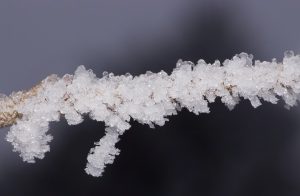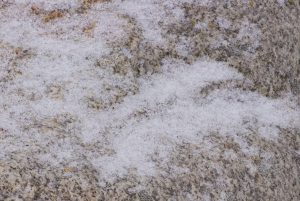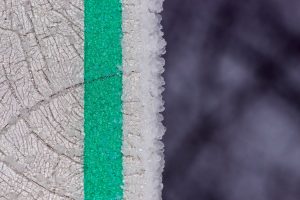I am dismayed at this emerging story about fraud in science. It stars Jonathan Pruitt, a professor at McMaster University who studies variation in individual behavior and how it affects group behavior. I’d heard of him since he’s doing a lot of work in social spiders.
He built up several productive collaborations, in particular with Kate Laskowski at UC Davis, sharing data with her that she used in several publications. That’s where the story turns dark, because Laskowski later examined the data in more detail and found multiple examples of blocks of data having been duplicated, padding the data set with more replicates than were actually done. He’d actually passed her a poison pill that tainted all the work they’ve done together; her papers are no longer trustworthy, and she has retracted them.
Laskowski is being heroically restrained in her reaction to this betrayal — I’d probably be throwing things and saying lots of not-nice words. Pruitt also seems to be peculiarly blasé and detached from the problem, conceding that there are serious problems in the data set, but not offering any explanations about how this has happened (again, if some of my data were found to be bogus, I’d either be furious and trying to track down the source of the bad data, or, if I were guilty of doing the duplications, I guess I’d be trying hard to deflect.)
There’s a lot of discussion and dissection of this issue going on, and most of it seems to be rightly concerned with making sure Pruitt’s coauthors aren’t hit with serious splash damage. At some point, though, there has to be a reckoning, and the source of the contamination tainting so much work will have to be dealt with. So far, everyone seems to be strangely cautious and circumspect.
I will not say Jonathan Pruitt is a victim, but he is part of the tragedy. Will we ever really know what motivated him? I decline to guess. He burst on the animal behavior scene with his first paper in 2008 and immediately began publishing at such a prolific rate that in another year or two he would have overtaken my own 41 year career in numbers of publications. This output got him a lot of academic success leading to his current position (current as I write anyway) of Canada 150 chair at McMaster University.
What Jonathan Pruitt produced was so far beyond average, it is hard to believe anyone would feel pushed to that level. But others feel pressure to produce in academia.
Fine. I’m not involved in any of this concern, so it’s not my place to say how the victims ought to respond. But I would say that the slower the build-up, the bigger the explosion, and so far this is looking to be a truly ugly meltdown at some point in the near future. Keep an eye on Jonathan Pruitt, there will be a supernova at some point soon, and not the good, pretty kind.
I’m mainly dismayed at the failure of scientific ethics. You don’t make up data! Ever! Every year I’m in student labs, explaining to students that “your data is your data” (I literally say that a lot, I’m afraid), and if your experiment didn’t come out the way you expected, or the data are ambiguous about what the one true Answer is, your job isn’t to make the data fit, it’s to rethink your work, track down sources of confusion, repeat the work, analyze the results appropriately, and if it doesn’t support your expected answer, revise your expectations.
That’s easy for me, though. The students don’t have a publication in Nature or a tenure decision in their favor, so they’re lacking all that unscientific pressure to get the neat, tidy, snazzy answer with beautiful p values.












